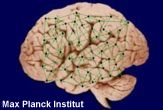Mental Exercise Nearly Halves Risk of Dementia

Staying mentally and physically active throughout life is the best way to keep the mind sharp and reduce the risks of developing dementia, two recent studies show.
One large group study found that staying mentally active reduces the risk of Alzheimer's disease and other forms of dementia by nearly half by building and maintaining a reserve of stimulation.
"It is a case of 'use it or lose it,'" said study leader Michael Valenzuela from the School of Psychiatry at the University of New South Wales in Australia. "If you increase your brain reserve over your lifetime, you seem to lessen the risk of Alzheimer's and other neurodegenerative diseases."
46 percent risk reduction
The study combined data from 29,000 individuals and 22 studies worldwide. It was detailed in a recent issue of the journal Psychological Medicine.
It found that individuals with high mental stimulation had a 46 percent decreased risk of dementia. The protective effect was present even in later life, so long as the individuals engaged in mentally stimulating activities.
The findings support the idea that a person's education, occupation, IQ and mental stimulation play a big role in preventing cognitive decline.
Sign up for the Live Science daily newsletter now
Get the world’s most fascinating discoveries delivered straight to your inbox.
In a previous study, Valenzuela showed that after five weeks of memory-based exercise, participants increased brain chemistry markers in a direction that was opposite to that seen in Alzheimer's. The change was concentrated in the hippocampus, one of the first brain regions to be affected in dementia.
Exercise helps too
Another study found that older people who exercise three or more times a week had a 30 to 40 percent lower risk of developing Alzheimer's and other types of dementia. Even light activity, such as walking, seemed to help.
This study, led by Eric Larson of GroupHealth Cooperative in Seattle, was published in a recent issue of the journal Annals of Internal Medicine.
The researchers tracked 1,740 people who were 65 and older over the course of nine years. The participants were all dementia-free at the beginning of the study.
At the end of the study, 77 percent of the individuals who were still free of dementia had reported exercising three or more times a week. The study could not determine whether certain types of exercise worked better than others.
In addition to preventing dementia, mental and physical exercise has also been found to boost the mood of depressed patients and improve memory in the elderly.










